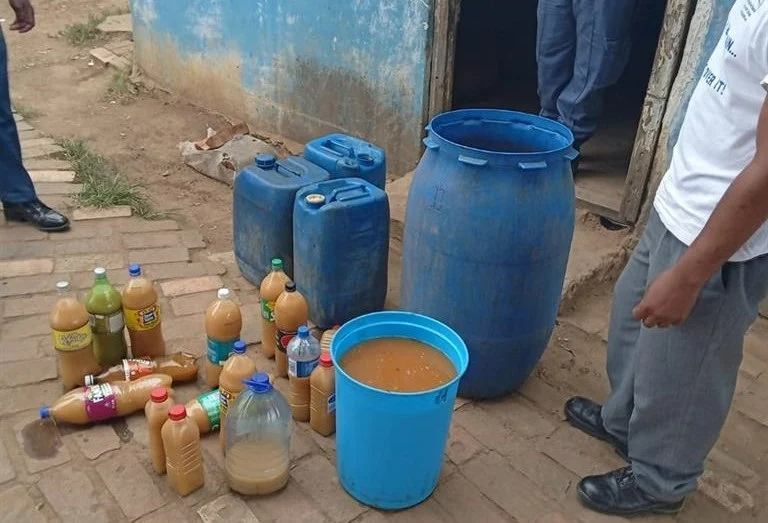Deadly Homemade Alcohol Claims Lives in Southern Malawi
Tragedy struck in Malawi’s southern city of Blantyre as five individuals lost their lives while two others remain hospitalized due to suspected alcohol poisoning. The victims were among nine men rushed to the city’s main referral hospital on Friday night after consuming homemade alcohol.
Gift Kawalazira, Director of Health and Social Services for the Blantyre District Council, confirmed the fatalities and noted that two individuals are currently under medical care at the hospital.
Malawi has been grappling with the persistent issue of illicit alcohol sales, particularly targeting unemployed young men and minors. Despite previous bans on various types of cheap beer, authorities have struggled to eradicate them from the market entirely.
Following the recent deaths, law enforcement agencies have launched a crackdown on the brewers and sellers of the locally-produced alcohol, known by various names such as “take me, Lord,” “stagger,” and “monkey killer.” Despite efforts to apprehend those responsible, no arrests had been made as of Sunday evening.
The tragic incident underscores the ongoing challenges associated with the sale and consumption of illicit alcohol in Malawi, highlighting the urgent need for comprehensive measures to address this public health issue and prevent further loss of life.
The loss of lives in Blantyre underscores the urgent need for concerted efforts to combat the sale and consumption of illicit alcohol in Malawi. The prevalence of homemade alcohol, often produced without proper regulation or quality control measures, poses significant health risks to consumers, as evidenced by the recent fatalities.
The government’s previous attempts to ban certain types of cheap beer have not been entirely successful in eliminating them from the market, indicating the persistent challenges in enforcing regulations and curbing the illicit alcohol trade. Additionally, the targeting of unemployed young men and minors by alcohol sellers highlights broader societal issues such as unemployment and youth vulnerability.
Law enforcement agencies’ swift response in initiating a hunt for the brewers and sellers of the illicit alcohol demonstrates a commitment to holding those responsible accountable for their actions. However, effective enforcement measures must be accompanied by broader initiatives addressing the root causes of alcohol-related harm, including education, economic opportunities, and access to healthcare.
Furthermore, community engagement and public awareness campaigns can play a crucial role in informing individuals about the dangers of consuming illicit alcohol and promoting responsible drinking practices. By fostering collaboration between government agencies, civil society organizations, and local communities, Malawi can work towards creating a safer environment and reducing the incidence of alcohol-related harm.
Ultimately, addressing the issue of illicit alcohol requires a comprehensive and multi-faceted approach that addresses both supply and demand factors while prioritizing the health and well-being of all citizens.



















